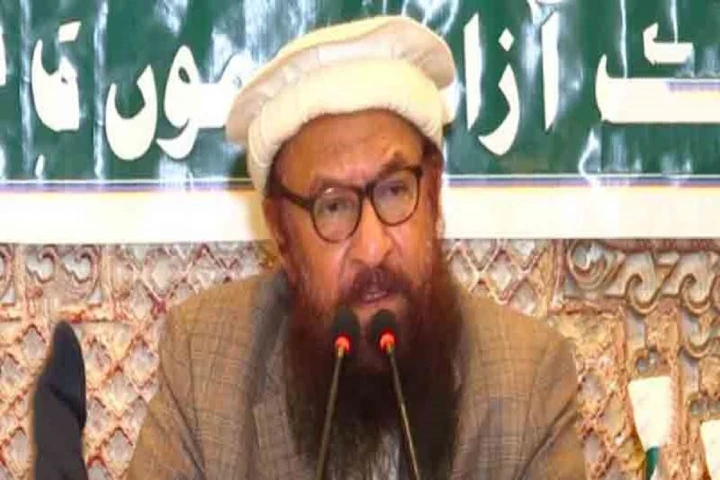The United Nations Security Council on Monday puts Pakistan-based Abdul Rehman Makki on the global terrorist list under its ISIL (Da’esh) and Al-Qaida Sanctions Committee.
The blacklisting has taken place despite China’s attempt last year to block India’s proposal to name the Lashkar-e-Taiba (LeT) leader a global terrorist. In June 2022, India had exposed China’s design to back Pakistan on the issue at the UN.
India and the US have already blacklisted Makki as a terrorist under their domestic laws. He has been involved in raising funds, recruiting and radicalizing youth and planning terror attacks in India, especially in Jammu and Kashmir.
“On 16 January 2023, the Security Council Committee pursuant to resolutions concerning ISIL (Da’esh), Al-Qaida, and associated individuals, groups, undertakings and entities approved the addition of the entry specified below to its ISIL (Da’esh) and Al-Qaida Sanctions List of individuals and entities subject to the assets freeze, travel ban and arms embargo set out in paragraph 1 of Security Council resolution 2610 (2021) and adopted under Chapter VII of the Charter of the United Nations,” the UN said in a statement.
UNSC ISIL (Da’esh) and Al-Qaida Sanctions Committee list Pakistan-based terrorist Abdul Rehman Makki as a global terrorist. pic.twitter.com/ttgDAr5iRi
— ANI (@ANI) January 17, 2023
Makki is the brother-in-law of Lashkar-e-Taiba (LeT) chief and 26/11 mastermind Hafiz Saeed. He has occupied various leadership roles within LeT, a US-designated Foreign Terrorist Organization (FTO). He has also played a role in raising funds for LeT operations.
In 2020, a Pakistani anti-terrorism court convicted Makki on one count of terrorism financing and sentenced him to prison, according to the US State Department.
China has been opposing the listing of known Pakistani terrorists. It had repeatedly blocked proposals to designate Maulana Masood Azhar, chief of the Pakistan-based and UN-proscribed terrorist entity, Jaish-e-Mohammed (JeM). The rogues gallery that Beijing has protected from blacklisting by the consensus based UNSC’s 1267 committee includes Sajid Mir, Talah Saeed, the terror, son of LeT founder Hafez Saeed, and Jaish-e-Mohammed terror leader Mufti Rauf Azhar. Sajid Mir was the main handler of the 26/11 attacks.
Pakistan had declared Mir dead, but had to acknowledge his presence on its soil under pressure from the Financial Action Task Force (FATF). India also wants the UNSC to ban Zaki-ur-Rehman Lakhvi the operational commander of the 26/11 attacks.
With 26/11 attacks as the focus, India’s intent to launch a counter-narrative international campaign against terror is visible in plain sight. In October, India hosted a major UN Security Council’s anti-terrorism meeting. Importantly, the conference was held at Mumbai’s Taj Mahal hotel—the scene of the carnage in 2008, fuelling fresh outrage against the horrendous crime.
Prime Minister Narendra Modi is on record saying that New Delhi was in no mood to forget 26/11 and move on. Instead, he stressed that, “India can’t forget the wounds of the Mumbai attacks. Now, today’s India is combating terrorism with a new policy and new ways,” he said as tweeted by the external affairs ministry.
In a similar vein, defence minister Rajnath Singh has asserted that, “This country has not forgotten the incident of 26/11, nor will it ever forget.”
India’s angst is now echoing across the globe. Timed with the anniversary of the 26/11 attacks, unprecedented protests were held outside Pakistani missions in many international metropolitan centres including New York and London.
Also Read: New India turns the heat on Pak-global terror alliance



















